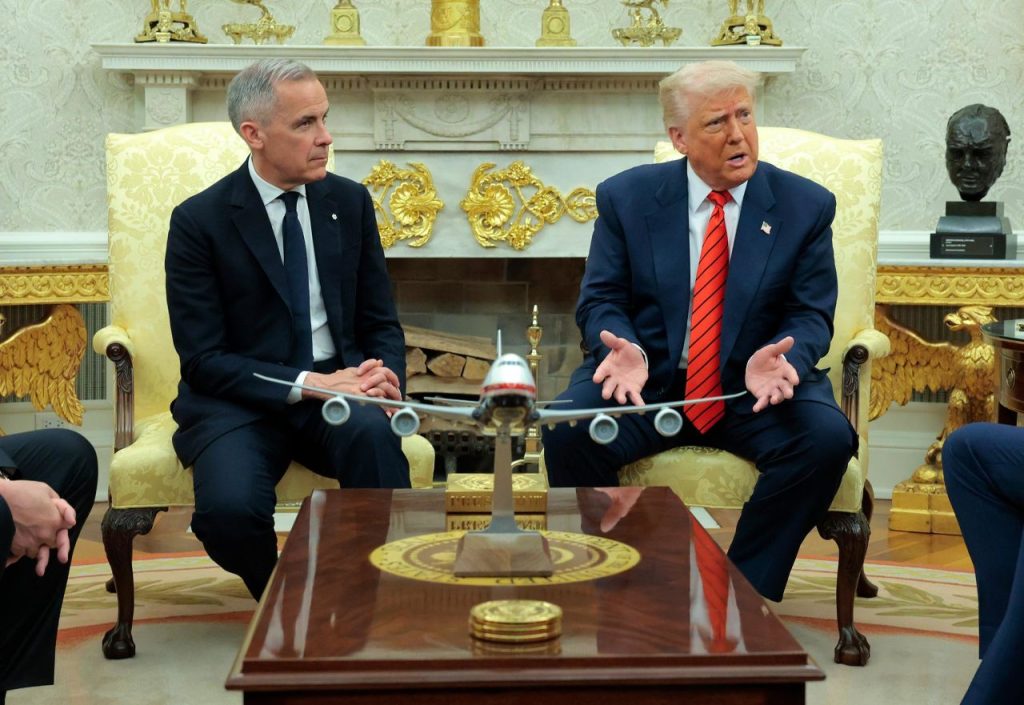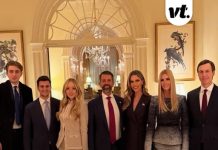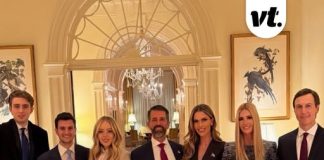In a significant diplomatic encounter on May 6, 2025, Canadian Prime Minister Mark Carney met with U.S. President Donald Trump in the Oval Office. The meeting was marked by candid exchanges, particularly concerning Trump’s suggestion that Canada become the 51st U.S. state.
Firm Rejection of Annexation Proposal
During the meeting, President Trump reiterated his idea of Canada joining the United States, suggesting it would be a “wonderful marriage” and stating, “Never say never.” Prime Minister Carney firmly dismissed the notion, asserting, “Canada is not for sale. It won’t be for sale, ever.” He likened Canada’s sovereignty to landmarks like Buckingham Palace, emphasizing its non-negotiable status.

Addressing Trade Relations
The leaders also discussed trade dynamics between the two nations. President Trump claimed that the U.S. doesn’t “do much business” with Canada, suggesting an economic imbalance. Prime Minister Carney countered this by highlighting that Canada is the largest client of the United States in terms of total goods, emphasizing the deep economic ties and mutual benefits of the relationship.
Navigating Diplomatic Tensions
Despite the firm stance on sovereignty, Carney employed a diplomatic approach, acknowledging President Trump’s transformative impact on politics. He emphasized the importance of redefining economic and security ties, advocating for a stronger, equal partnership between the two nations.
Public and Political Reactions
The meeting garnered significant media attention, with observers noting the awkward moments and the clear delineation of national interests. Carney’s assertive yet diplomatic handling of the discussions was seen as a reflection of his commitment to Canada’s sovereignty and his intent to reset strained relations with the U.S.
Future Engagements
Looking ahead, both leaders expressed a willingness to continue dialogues on trade and other bilateral issues. Prime Minister Carney emphasized the need for cooperation over integration, signaling a desire to strengthen ties while maintaining national autonomy.
Media Fact-Checks and Clarifications
Following the meeting, several of Trump’s statements came under scrutiny from fact-checkers and analysts. One of the most contested claims was Trump’s assertion that the United States “doesn’t do much business” with Canada. In reality, Canada remains the United States’ largest trading partner by goods and services combined. In 2023 alone, bilateral trade between the two nations exceeded $800 billion USD, with key exports including automobiles, energy products, and agricultural goods. Economists and political commentators criticized Trump’s claim as misleading, emphasizing the deeply interconnected nature of the two economies. Similarly, Trump’s casual reference to Canada becoming the 51st state was met with criticism and mockery in Canadian and international media. While the remark may have been rhetorical, its repetition has drawn concern from those wary of Trump’s unpredictable foreign policy tone.
Carney’s Political Debut on the World Stage
Mark Carney’s meeting with Trump marked his first major appearance as Prime Minister on the international stage. A former central banker with extensive experience in global finance, Carney demonstrated composure and strategic clarity during the meeting. He positioned himself not just as a national leader, but as a statesman capable of navigating complex diplomatic scenarios. Political analysts noted that Carney managed to assert Canada’s sovereignty while keeping the conversation constructive. His performance drew praise across party lines in Canada, with many lauding his emphasis on diplomacy over confrontation. Carney’s calm, factual approach stood in contrast to Trump’s more brash, improvisational style—setting the tone for what may become a more assertive yet cooperative Canadian foreign policy.
Broader Implications for North American Relations
The Carney-Trump meeting also highlighted broader questions about the future of North American cooperation. With both nations facing economic uncertainty, shifting geopolitical dynamics, and evolving security concerns, the need for reliable partnerships is more urgent than ever. Carney emphasized shared values and mutual interests, stressing that Canada seeks a “balanced, respectful, and modern relationship” with its southern neighbor. He dismissed any notion of political integration, but remained open to renegotiating trade agreements and reinforcing cross-border security initiatives. Observers suggest that Carney’s approach could set a precedent for how smaller nations can effectively engage with more powerful allies—through clear communication, national self-confidence, and mutual respect.

Conclusion: A Defining Moment in Diplomacy
The Oval Office meeting between Prime Minister Mark Carney and President Donald Trump was more than a political photo op—it was a revealing moment of diplomatic clarity. Carney stood firm in defense of Canadian sovereignty while extending a hand of cooperation. Trump, meanwhile, doubled down on provocative ideas, likely aiming to appeal to his base during a contentious election year. As the dust settles, both nations appear committed to continued engagement, albeit with clearly defined boundaries. Carney’s debut as a global leader has drawn international attention, offering a glimpse of a new era in Canadian diplomacy—one that values facts, stability, and sovereign integrity.

















